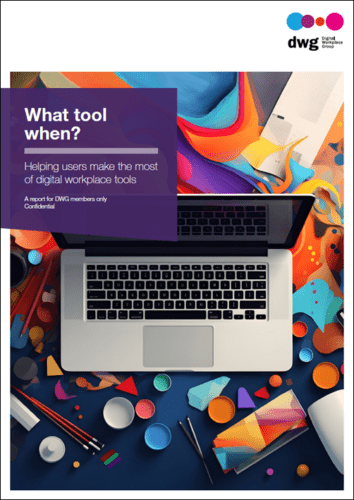Can public sector intranets regain lost momentum?
All intranet managers have found themselves on a roller coaster ride in recent years when it comes to justifying budget and selling plans for development – none more so than those in the public and third sectors. But is a new impetus growing for intranets in these sectors?
Battening down the hatches
 Back in 2010 I attended an IBF meeting of UK public and third sector intranet managers – we called it “Digital Momentum in the Public Sector”. We were right at the start of harsh budget cuts which were already having a significant impact on plans to develop and even just maintain intranets. Intranet managers were struggling with many of the same issues we see in the private sector:
Back in 2010 I attended an IBF meeting of UK public and third sector intranet managers – we called it “Digital Momentum in the Public Sector”. We were right at the start of harsh budget cuts which were already having a significant impact on plans to develop and even just maintain intranets. Intranet managers were struggling with many of the same issues we see in the private sector:
- Supporting collaboration
- Meeting the expectations of increasingly digital savvy users
- Implementing SharePoint
- Providing seamless user experience
- Pioneering the digital workplace beyond the intranet
And more.
The missing link
It was painful to watch as plans had to be scrapped or seriously scaled back. Especially as from our benchmarking we knew that in certain areas of intranet practice – accessibility in particular – public sector intranets had led the way for the private sector. And in other areas, such as visual design and consistency, big strides had been made in recent years among our public sector members.
The missing link in all of this, of course, is the fact that effective and engaging intranets are key to supporting a whole array of workplace programmes, from communication, staff engagement, productivity, cultural change, flexible working and more. A year after the UK government’s 2010 comprehensive spending review, research was already highlighting the critical need for effective two-way communication in public sector organizations to help support staff morale.
Lack of investment in intranets is at best short-sighted, at worst it is a serious blow across all of these workplace programmes. The concern is that with momentum lost, it will be incredibly hard to regain lost ground.
New impetus for intranets
On the up side, with the London Olympics has come a big boost for new ways of working – in the UK at least. And despite out-of-date attitudes such as Major of London Boris Johnson’s view on flexible working as a “skivers paradise” (see @sharonodea’s excellent rebuttal), new ways of working are most definitely “in”.
A recent survey by Capita Symmonds and Civil Service World identified significant opportunities to reduce office space and improve worker productivity and work/life balance. And research from the Flexible Work Commission again shows the importance of expanding the definition of flexible working and understanding its potential benefits. The prerequisite to leveraging these opportunities that doesn’t always get mentioned, though, are the digital services that need to be in place in order to take advantage of this shift.
What does this mean for intranets? It’s a clear opportunity for intranet managers in the public and third sectors to regain lost impetus. At the Digital Workplace Group we’ve been focusing in this year on measurement, value, strategy and business cases for intranets and the wider digital workplace. The evidence is overwhelming that the intranet as part of the wider digital workplace is at the heart of leveraging new ways of working to achieve cost savings. It’s time for intranet managers to refocus on making the business case for intranet investment within the organization. And to look around at what some public sector intranets are already achieving – even in the toughest of times.
Contact us for information on DWG’s work
with public and third sector intranets.
Categorised in: Uncategorized
